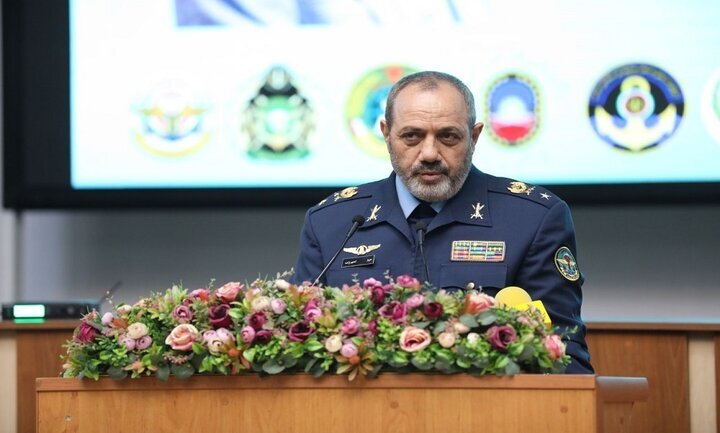Iran’s ongoing maritime progress poses challenge for enemies: commander

TEHRAN – Deputy Chief of Staff of the Iranian Armed Forces Brigadier General Aziz Nasirzadeh has emphasized the need for ongoing maritime development in Iran, and highlighted the challenges faced by the U.S. Navy's special operations from the Iranian Army's 86th flotilla.
Addressing the National Conference on Explaining the Dimensions and Achievements of the 86th naval flotilla of the Iranian Army at the Kowsar Conferences Center, Nasirzadeh stressed the importance of not forgetting the achievements of the 86th naval flotilla. He suggested organizing sessions to elaborate on the successes of this naval operation.
Nasirzadeh delved into the historical shift from land-based conflicts to maritime dominance, citing the global access to oceans and the suppression of rivals that drew Germany and Britain into World War II. He highlighted post-World War I maritime cooperation treaties between the United States and Britain, culminating in the naval blockade of Japan during World War II.
Discussing U.S. policies, Nasirzadeh pointed out their historical tendency to occupy other countries' shores and protect their own coasts, a strategy still pursued. He underscored how Iran's ocean navigation challenges the primary principle of American imperialism, providing global maritime access for the country. Nasirzadeh stressed that the development of Iran’s maritime capabilities aligns with anti-imperialistic and civilization-building policies.
Emphasizing Iran's highly strategic geopolitical position, Nasirzadeh mentioned the reported 1,500 sea-related jobs created today. He asserted that the development of Iran's maritime activities should face no interruption.
Nasirzadeh clarified that achieving this goal involves increasing defensive capabilities and highlighted the importance of regional and extra-regional power in the sea, extending towards the Indian Ocean. He noted the existence of nine crucial global straits, with three in the region. “Given the concentration of economic and energy activities, having regional and extra-regional power is imperative,” Nasirzadeh commented.
For the first time in Iran’s naval history, Iran's 86th flotilla, featuring the domestically manufactured Dena Destroyer and Makran forward base ship, returned on May 17, 2023 after completing the inaugural round-the-world mission.
The fleet successfully circumnavigated the globe, traversing the Indian, Pacific, and Atlantic oceans, marking a historic achievement for Iran's naval forces.
Departing from Bandar Abbas on September 20, 2022, the flotilla concluded its 236-day journey by anchoring at Oman's Salalah harbor. Covering a total distance of 63,000 kilometers, the fleet crossed the equator four times during its remarkable expedition.
Dena is a Mowj-class destroyer that joined the Iranian Navy in June 2021. The military vessel is equipped with anti-ship cruise missiles, torpedoes and naval cannons.
Makran is a forward base ship weighing 121,000 tons. The warship can carry five helicopters and is employed for providing logistical support for combat warships.
Last week, the 94th flotilla of warships of the Iranian Navy reached the territorial seas following a protracted mission in the Red Sea and the Gulf of Aden.
Amid tensions heightened by foreign intervention in the region, the Islamic Republic is increasing its naval presence in the high seas.
After traversing more than 12,000 kilometers of maritime channels over the course of 91 days, the flotilla, headed by the frigate Alborz, reached the Islamic Republic’s territorial seas last week.
Ayatollah Khamenei stated in August 2023 that the Navy’s presence in faraway seas such as the Pacific and Atlantic oceans benefits national security.
The Leader added that “the United States and other superpowers monopolize general issues about mankind. If they could, those powers would even claim the seas in their name so that others would not have access to the natural resources.”
Iran’s Navy has achieved self-sufficiency in manufacturing surface and sub-surface vessels in recent years. It has also increased its presence in international waters to protect naval routes and provide security for merchant vessels and tankers.
Iranian military experts and engineers have made remarkable breakthroughs in manufacturing a broad range of indigenous equipment in recent years, contributing to the armed forces' self-sufficiency.
Leave a Comment